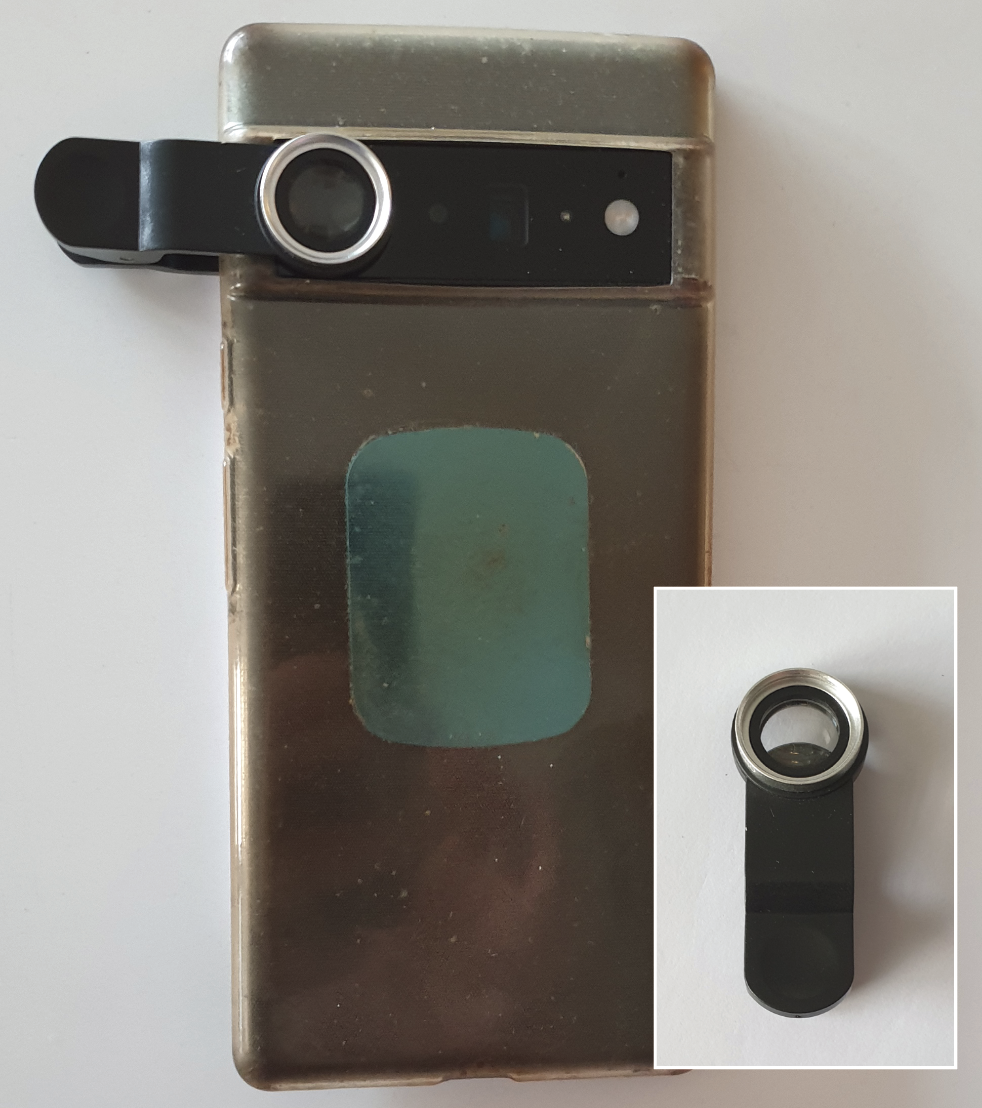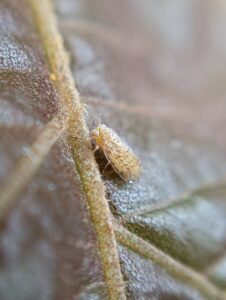
Invertebrates play a significant role in the ecology of this planet. They pollinate many of our native plant species, have led to numerous medical discoveries, provide food and help to maintain ecosystem balance. Despite this, people tend to overlook most invertebrates, other than butterflies and bees.
I was one of those people until I discovered iNaturalist a few years ago and wanted to record all naturally occurring plants and animals in my suburban backyard. Invertebrates quickly became the most interesting subject and they now make up the majority of my species on my iNaturalist list. I have now recorded 85 species of invertebrates just in my backyard and am continually finding species I haven’t recorded before.
One of those invertebrates is a tiny 2mm psyllid that I found on one of the Brown Kurrajongs (Commersonia bartramia) in my backyard. I took some photos of this psyllid using a clip-on macro phone lens. These clip-on lenses are very useful, particularly for small insects, as they allow you to take a clear enough photo to provide enough detail for potential identification.

In this instance, my photo provided enough detail for an excited entomologist from Melbourne to message me on iNaturalist about the psyllid potentially being a new species in the genus Diclidphlebia, which was previously thought to not occur in Australia. The distinguishing characteristic of this genus is the small hairs that can be seen along the veins of the wings, which would not have been visible without the macro lens attachment.
With tens of thousands of invertebrate species yet to be formally described in Australia, there are many important discoveries still to be made. So, if you’re wanting to contribute valuable citizen science data, I recommend taking a closer look at invertebrates and consider purchasing a simple clip-on macro lens for your phone. They only cost $10-$15 and are readily available online.
Article and photos by Nick Swanson
Land for Wildlife Officer
Logan City Council
